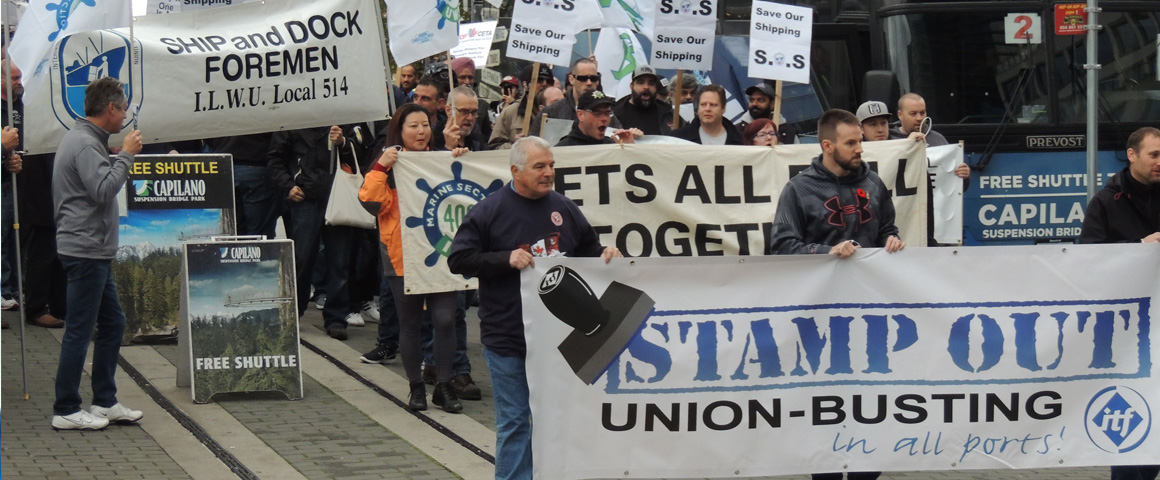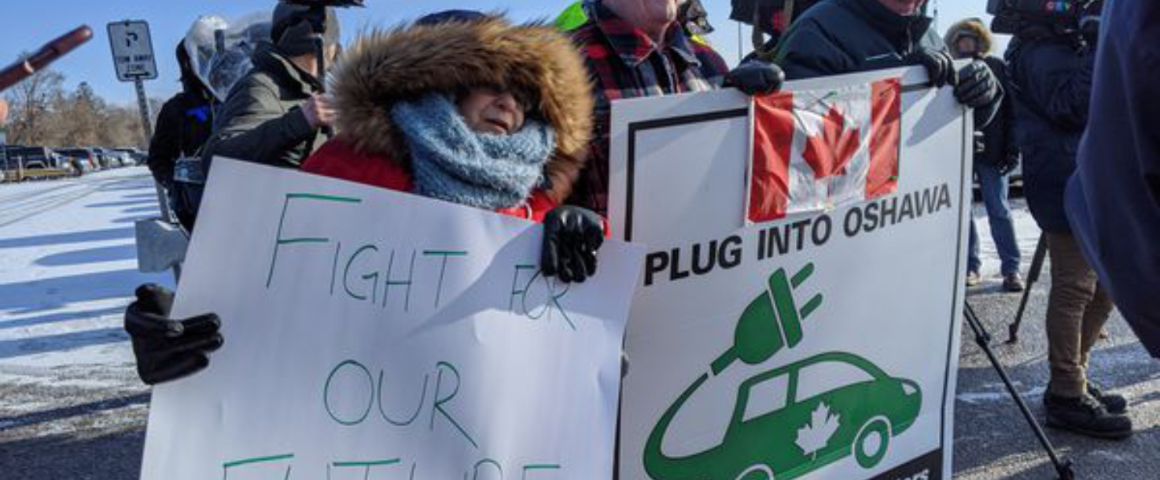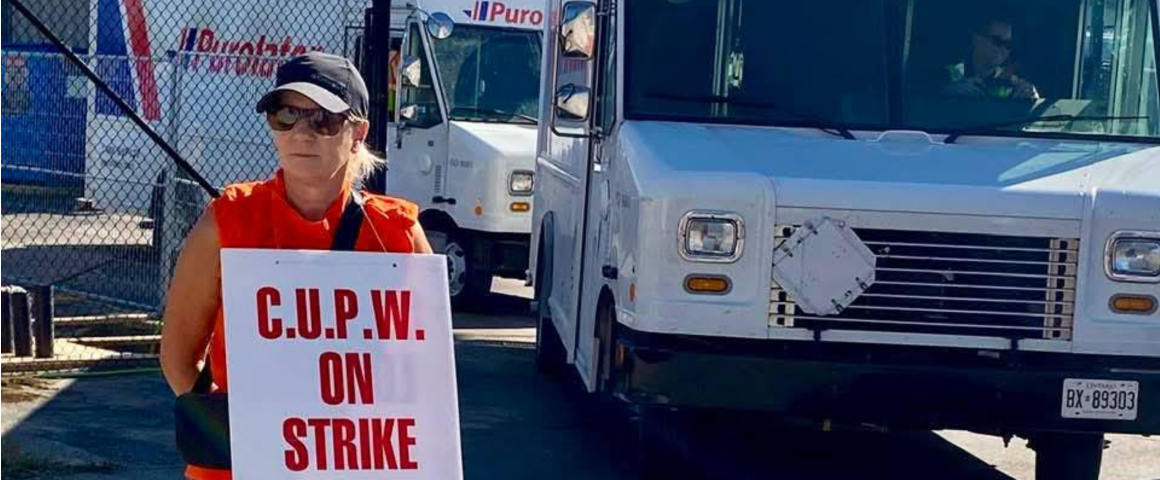PV Vancouver Bureau
Five hundred maritime workers and their allies rallied in Vancouver on Nov. 2, against the Comprehensive Economic Trade Agreement (CETA) and proposed changes to the Canada Transportation Act.
Most of those who marched to the Burrard Street offices of Transport Canada were members of the International Longshore and Warehouse Union, but others joined in. Delegates from the Hospital Employees Union annual convention at the Hyatt Hotel came out to greet the marchers and sing “Solidarity Forever”. The rally was supported by the International Transport Workers Federation (ITF), the BC Federation of Labour, the Vancouver & District Labour Council, the BC Ferry and Marine Workers Union, and others.
Maritime unions warn that corporate rights deals such as CETA and the Trans Pacific Partnership threaten the “cabotage” rules which govern the transport of goods. CETA would essentially bring Canada into the cabotage-free European zone, ending any protection for the domestic shipping industry.
CETA was signed in Brussels by Justin Trudeau and EU leaders, but the deal will not take effect until ratified by the parliaments of all the countries involved, a process which remains very much in doubt.
ILWU predicts the deal would begin to pull Canadian crew from commercial vessels such as tugs, ferries and barges – and eventually from passenger ships – that sail between Canadian ports. This is done already through waivers of cabotage regulations, but CETA will mean the complete elimination of such rules.
One example of the consequences was the recent diesel fuel spill off the coast near Bella Bella, north of Vancouver. The tug which sank in that accident was foreign-flagged and operated by non-Canadians who were less familiar with the local waters.
Another example is a cable-laying ship off Victoria on an eight-year contract, excused from hiring a single Canadian worker, and paying their crew as little as $4 per hour.
In a recent statement, ILWU Canada President Rob Ashton wrote, “As you all know Canada is attempting to sign onto the Comprehensive Economic Trade Agreement (CETA). This is only the beginning of the attacks on Canadian workers and Canadian sovereignty through “Free Trade Agreements”.
“Why is CETA such a bad deal for the ILWU and Canada? CETA will effectively destroy our cabotage laws which protect Canadian shipping companies and Canadian seafarers from foreign vessels trading within Canadian waters. CETA will allow foreign vessels to enter our waters and take over coastal trade within Canada using foreign crews whom they pay as little $3 to $4 per hour. The safety standards for these vessels are substandard putting our coastlines in jeopardy and displacing our Canadian seafarers costing our country thousands of jobs.
“The environmental stewardship of our coasts will be forgotten; our waterways will be sailed by corporations who have no consideration for the environment and our tug boats will be operated by foreign crews who are unfamiliar with our coast nor care about our coast as much as we do.
“Under CETA and all future trade agreements there is a clause written in the Investor State Dispute Settlement system, commonly known as ISDS. Under this program, if a government tries to change their laws or regulations to better run their country, a corporation that is affected by the change has the ability to sue the government thus taking away our rights to govern our own country, and could very well leave rulings in the hands of global corporations and a global court system.
“CETA, Trans-Pacific Partnership (TPP) and Trade in Services Agreement (TISA) are the most recent forms of free trade agreements that have hit the news involving Canada, and every one of those deals is unfavourable to workers in Canada. Each allowing many, many freedoms under the guise of moving goods in and out of our country. The question remains should we trade at any cost? Should we enter trade deals that attack an industry of Canadian workers? How will we keep Canadian jobs for Canadian workers? Do we have to go to the lowest wage so corporations can make maximum profits? This is the only reason behind global trade deals.”
As Ashton concluded, “We are protecting our way of life and we intend to hold our governments accountable on `real change’ as they promised, rather than the same old way of life under the past Harper government. The ILWU is under attack, if we do not rally together to protect our seafarers it is only a matter of time until they come after the rest of us!”




